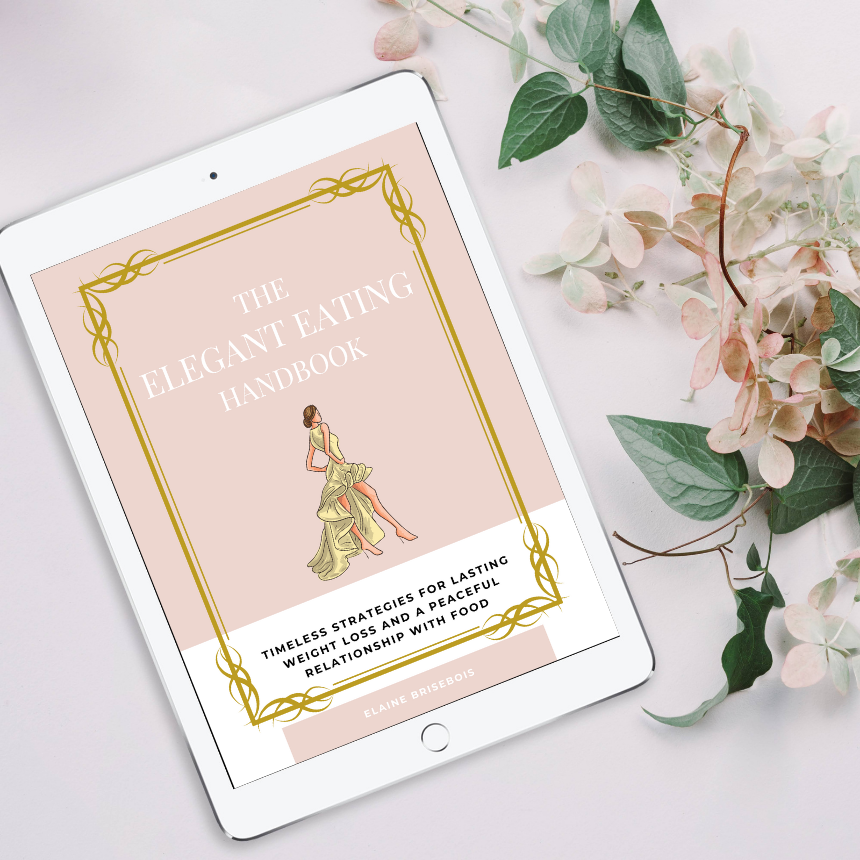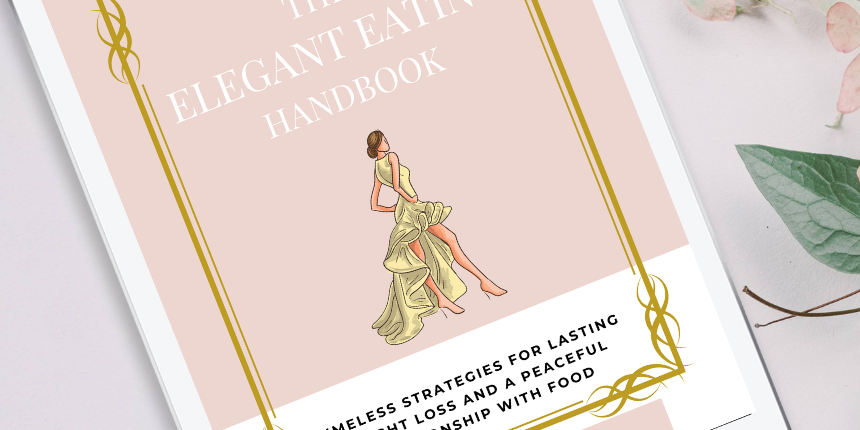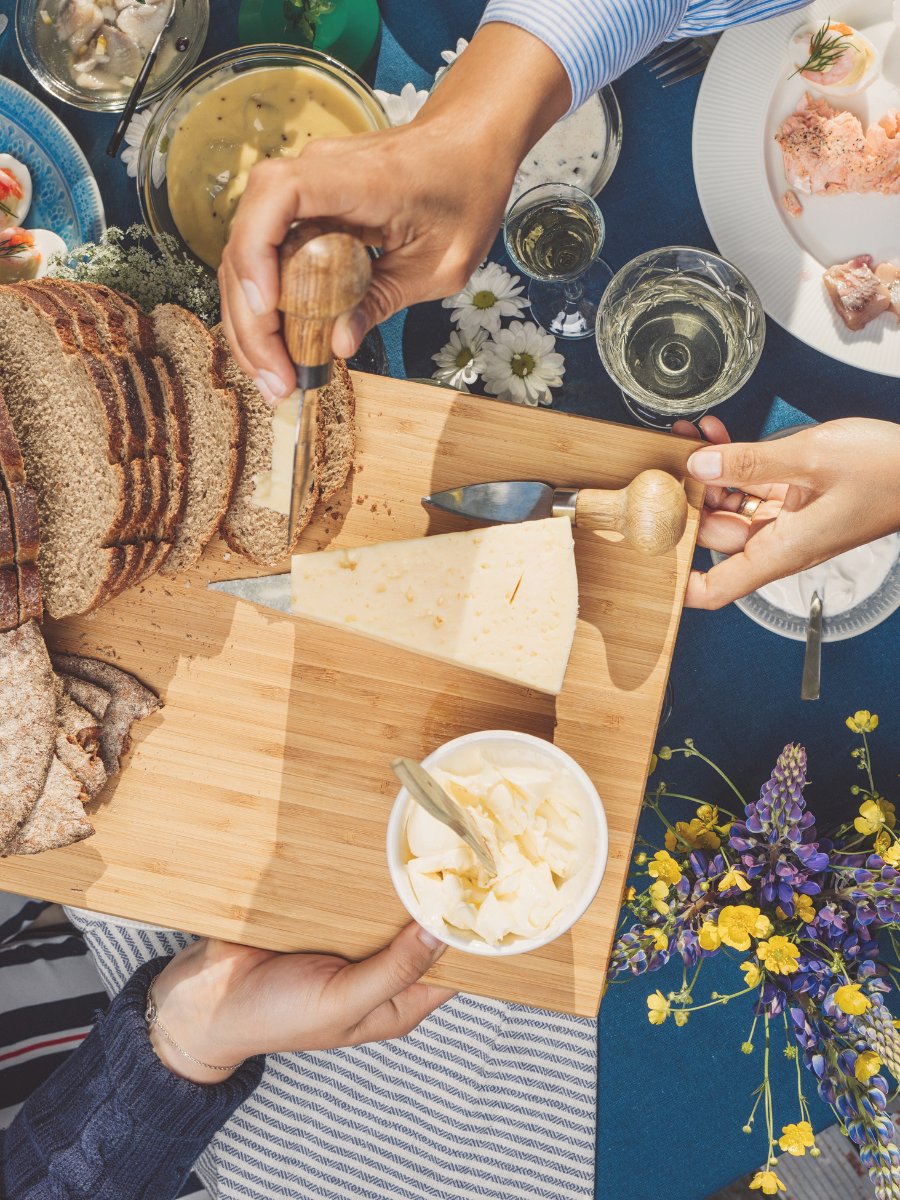Do you treat your hunger like a baby?
Rush off to rescue it at the slightest whimper or stomach growl?
Go looking for a little “snacky” to soothe and calm its cries? Goo-goo Gah-gah.
I’m sure that sounds ridiculous, but the truth is, this is how many people go about their day-to-day lives.
Besides, isn’t it only normal for a mother to want to comfort her baby and ease any tension it may be experiencing?
Of course, it is.
But we need to find the right balance. Because we don’t want to be one of those helicopter parents either, smothering our child’s every move.
You see, we live in a snacking culture. Of course, it doesn’t take a genius to figure this one out. Just go step foot in any grocery store and check out the “snack food” aisle (actually better yet, avoid it altogether).
But maybe you’re sitting there thinking, “But Elaine, I only eat healthy snacks. My snacks consist of homemade trail mix, apples and almond butter, and carrots and hummus”. And believe me, if that’s the case then hats off to you because choosing whole foods is always going to trump packaged snacks.
But the question is, do we even need to snack at all? Or at least as often as we do?
Every time I hear some (well-intentioned) nutrition or health expert encourage people to “eat every 2-3 hours to stoke the metabolic flame”, I want to poke my eyes out (or at least throw an apple at them – kidding!)
But honestly, do we really need to eat 5-6 metabolically mapped out meals per day?
*SPOILER ALERT*
No, we don’t.
There are still many cultures around the world where the norm is to enjoy 2-3 meals per day with no snacks in between.
In fact, this is how I’ve shifted my own eating over the years, and how I encourage many of my clients to eat too – particularly if they’re struggling with weight problems, digestive issues, hormonal imbalances, and/or just a complicated relationship or preoccupation with food.
As I always tell my clients: snacking is optional – not required.
But before I go further, allow me to clarify.
Not all snacking is bad.
Yes, there are tons of situations where having a snack is perfectly appropriate.
And yes, sometimes I snack too.
There are of course always going to be exceptions, and too many to list here.
But let’s talk about the rule and not the exception.
Meaning what you strive for the majority of the time – let’s say 80% of the time.
Here I’ve listed my top 5 reasons for giving up the snack and transitioning to 3 meals per day.
1. Savor and Enjoy Mealtime So Much More
Know what I can’t stand more than anything? A spoiled appetite.
Have you ever sat down to a table full of beautifully prepared food only to find yourself unable to enjoy it because you weren’t hungry? When you stop snacking between meals you elevate your mealtime to a whole new experience, and you actually look forward to eating because you’ve actually allowed yourself to build up an appetite and get hungry.
As you become accustomed to not snacking, you’re better equipped to exercise self-restraint because you know the payoff of waiting will only be that much sweeter. Also, when you know you’re not going to be eating again until your next meal, you’ll likely find that you slow down more to appreciate the food before you. Mealtime becomes more of an event, rather than just something you hurriedly rush through.
2. Improve Digestion
Creating space between meals allows your digestion to function smoother. It takes an average of 4-5 hours after a meal for food to leave your stomach, so it’s best not to impede the process by throwing more food into the mix. Not only will your stomach feel flatter and less bloated throughout the day as your digestion functions better, but by not continually snacking, you’ll free up energy that would have normally gone towards digestion.
Also in my experience, it can often be easier to identify and pinpoint food triggers (or sensitivities) when eating is spaced out.
3. Understand True Hunger (Physical vs Psychological)
Sadly most people aren’t tuned into true physical hunger simply because they don’t wait long enough to get to that point. What people often mistake for physical hunger is actually psychological hunger – experienced as a result of boredom, procrastination, stress, or other emotional highs and lows.
Think about those times when you’re really busy at work, perhaps you’re in the flow and intensely focused on the task before you. You find that food is the furthest thing from your mind, and even if you do feel a slight hunger, you know you can push on through until your next meal. It’s when you’re bored, feeling challenged, or procrastinating that suddenly a Starbucks run or trip to the kitchen sound really appealing.
Here’s a simple little test you can try to see if you’re truly hungry. How appealing does eating an apple sound right now? If you’re thinking not so much, you’re probably not as hungry as you think.
4. Optimize Fat Burning
When you fast in between meals (ideally 5-6 hours) you give your body a fighting chance to actually tap into its own fat stores to be used as fuel, rather than only burning glucose. If you’re continually eating you’ll constantly have a supply of glucose to be used immediately as fuel, stored as glycogen for later use, or worst case – if you eat too much and don’t exercise – stored as fat. Even if you’re reaching for a healthy snack (i.e. carrot sticks or an apple), your body is still going to burn that fuel first before burning its fat stores as a fuel source. This is also why exercising in a fasted state is particularly beneficial for fat burning (remember, weight loss doesn’t equate to fat loss).
5. Free Up Mental Space and Energy
If you’re one of the many people who have a complicated relationship with food and a history of dieting, then switching to 3 meals per day with no snacks can be extremely liberating. Think about it. You have your 3 “containers” and that’s all you have to worry about. There’s no hemming and hawing or internal dilemmas about whether or not you should eat the cookie (besides if you want it that bad you can just have it for dessert).
Also, less of your time is consumed by planning out snacks and “mini-meals” – which frees up time and energy to pursue other things that are more important to you.
Tips for Transitioning to 3 Meals (no snacks)
- Start by limiting snacking to once per day (cut out the morning snack first)
- Drink plenty of water between meals (if you feel hungry always have some water first, or make yourself a cup of tea)
- Build your meals around plenty of veggies, protein, and some healthy fat
- Opt for whole, unprocessed foods (even if you must have a snack)
- Eat enough at your meals so you’re satiated and not hungry an hour later
- Sit down and enjoy your meals (no eating while standing, on the computer, or watching television)
Please keep in mind that if you’re used to freely snacking between meals, you’ll likely feel some initial discomfort as you transition to eating at mealtimes only (or just limiting snacking in general). By the same token, there’s no ONE way that’s perfect for everybody, so if you found a strategy that works for you and you’re getting the results you desire, then, by all means, keep on doing what you’re doing!
Love,
Elaine
Interested in private coaching? Check out my 3-month nutrition coaching program.
Download a copy of my Elegant Eating Handbook to learn simple and effective strategies for permanently living at your natural weight.

Hi! I’m Elaine, a Certified Nutritionist and Master Certified Health Coach. I support women in achieving their health and body goals while prioritizing a peaceful and balanced relationship with food.

Get a free copy of my handbook!
The Elegant Eating Handbook: Timeless Strategies for Lasting Weight Loss and a Peaceful Relationship with Food.
share with friends
keep reading...





what a great idea! I am a notorious snacker because when I get too hungry I feel light-headed or I get a bit nauseous. Sometimes at work the gnawing in my stomach is a big distraction. I will definitely use this strategy to limit my meals to 3 a day. It all makes sense.
Thanks!
Marilyn
Yeah, give it a try. If you need to have a snack while you’re making the transition, that’s perfectly okay. Just reach for something healthy!
Great tips, I”m trying now to drop the snacking between meals, its not easy, but I’m sure my body will adjust as soon as I get over the hunger feelings.
Thanks!
Thanks, Tina! Yes, it can be a bit of a transition.
[…] ← Previous […]
[…] free up some mental space that is otherwise preoccupied with food and eating. I wrote a whole post on my case for not snacking here that’s worth checking out. Of course, having a conscious snack if you’re truly hungry is a […]
[…] are so many benefits to giving up snacking (and constant grazing), and I actually dedicated a whole post to it here, but they include optimizing digestion and fat burning, upleveling mealtimes and the experience of […]
[…] ← Previous Next → […]